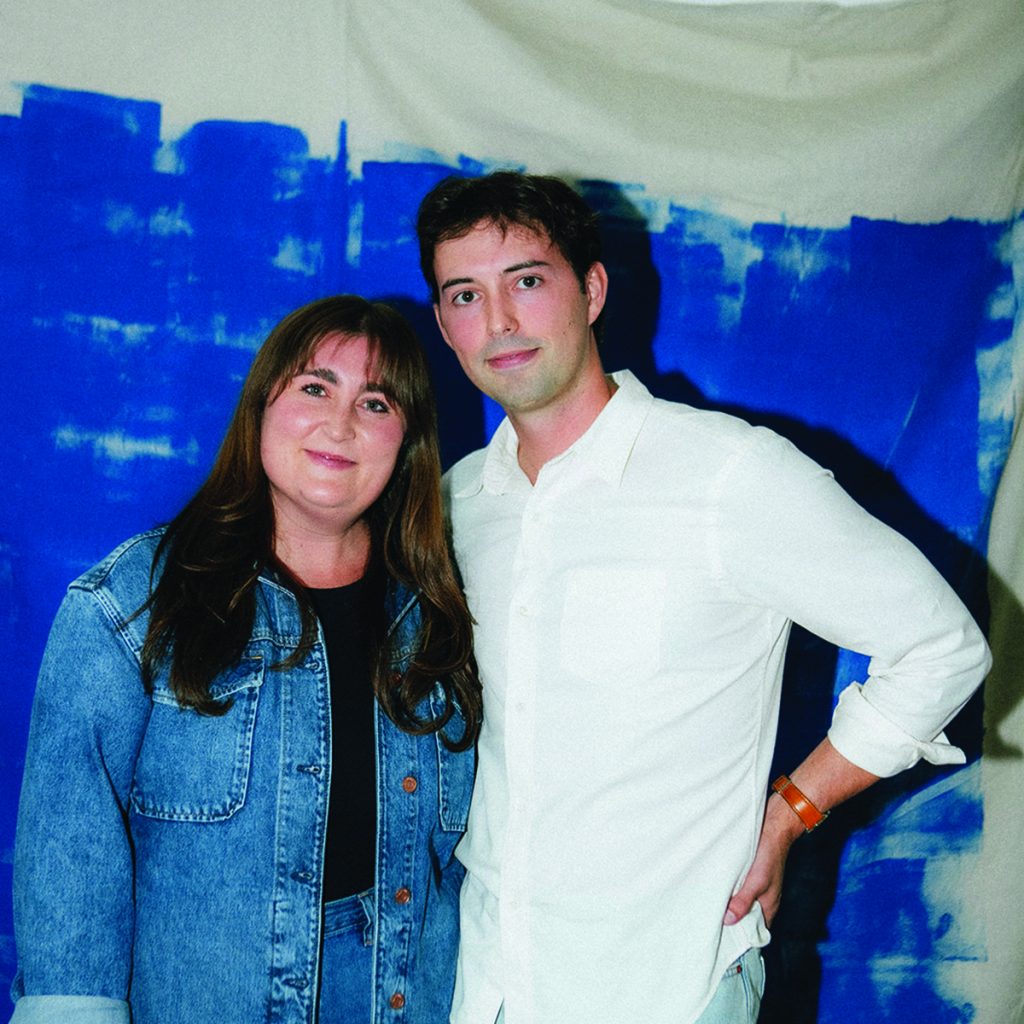
With her signature bangs and blue Coke-bottle glasses, Emma McCallie looks a bit like brainy Velma on Scooby-Doo. But instead of solving mysteries, she’s cracking the code on something just as elusive: adult friendship.
Together, Emma and partner Dallas Condra have boiled down the science of friendships and who is attracted to whom to an algorithm that they deploy in their start-up company, Folx Table, a platform for connection through in-person experiences.

Talk to strangers. Connect to something. Book your seat. Folx Table is a platform for connection through in-person experiences.
As a former middle school teacher turned public servant, Emma started hosting dinner parties in her attic, where she asked questions to prod connections. She realized that making friends is hard, and in January 2024 decided to make her dinner parties official. She did a pilot program with a running club to test it out, then launched Folx Table in September 2024. And folks are hungry for connection. Already, some 1,500 folks have participated.
Folx Table works like this: Guests sign up online and answer a few questions. For example, what are you looking for in your social life? Are you hoping to find a close-knit circle or expand a broader network? Based on your goals, the algorithm matches you with people and events you might like, taking into consideration age, life stages and other inputs.
This is a responsibility Emma and Dallas take seriously as they look to moderate connection. Folx events are not “special events” but get-togethers that nurture friendships. They frequently take place on work or school nights and involve little glamour or gussying up, in environments where you’re most apt to return.
“Anyone can have a great conversation, but are these people you’d like to see again? And people are looking for that connection.” – Emma McCallie
The experiences take place at restaurants and bars, and Folx Table currently has a list of about 30 partners, including Xiao Bao in East Nashville and Dicey’s in Wedgewood-Houston. While food is not usually the point, the structure of a restaurant—seating, sounds and lighting—can shape an experience.
Start with a quick coffee at a table of four, or 90 minutes of drinks at a table of five. Dinner is a $17 ticket for two hours at a table of six, where everyone buys their own meal. Any Folx event starts with an ice-breaker game on the table, and each guest assumes a role—toastmaster or memory keeper, for example—giving everyone a chance to lean in and move the conversation along. Only two subjects are off the table: work and weather. (The meteorologist who came was in a pickle.) No pitch decks, no resumes. Afterwards, participants debrief about how and whom they connected with.





Imagine an encounter peppered with meaningful questions, such as Dallas’s favorite: “What is something that you made genuine progress on, that other people might not yet notice?”
Or one of Emma’s: “What is something that you pretend to love but actually hate? Or something you pretend to hate but you actually love?”
The goal is conversations that go beyond “What do you do?” and work toward “Who are you?”
In the end, Folx Table isn’t just about meeting people; it’s about making the type of real connections we all deserve.